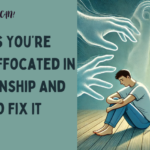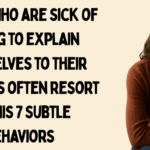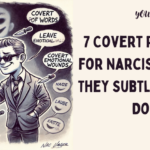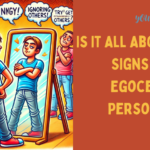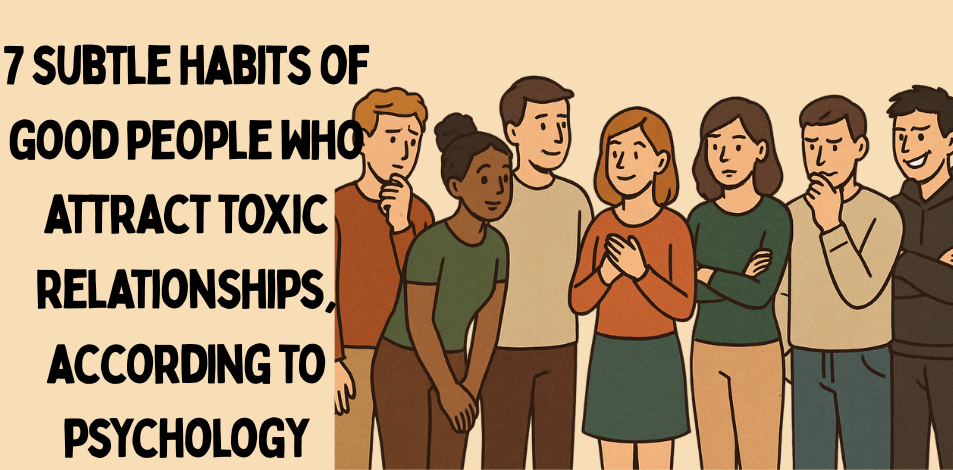
Sometimes, the best of us end up in the worst relationships. It’s a mystery that baffles even the kindest of people: Why do I attract toxic relationships?
It’s not about blame, it’s about understanding. Psychology has shed light on this paradox, revealing hidden habits that can attract negativity into our lives, even when we’re just trying to be kind to others.
Let’s delve into these seven hidden habits of kind people who unwittingly attract toxic relationships. It’s time to pay attention to your behaviors and make healthy choices for your mental health.
Remember, awareness is the first step toward change. Let’s get started.
1) Over-Givers Attract Over-Takers
Kind people are often generous, not just with material possessions, but with their time and energy as well. This selflessness is a beautiful trait, but it can also act as a magnet for toxic individuals eager to exploit this kindness.
World-renowned psychologist and author Dr. Adam Grant says in his book, “Giving and Taking”: “Takers are those who focus more on taking than on giving… They view the world as a competitive place, where the winner wins… They feel that success requires being better than others.”
When a good person becomes overly generous, constantly giving to others without considering their own needs, they create an imbalance that takers exploit.
The challenge, then, is to strike a balance—continue giving, but also learn to set boundaries and prioritize self-care. It’s not selfishness; it’s survival. Awareness of this habit is the first step toward building healthy relationships.
2) The Need to Fix Others
I remember dating someone who was going through a rough patch. He was struggling with his job, had low self-esteem, and had a negative outlook on life. I saw him as a project, someone I could help. I wanted to fix him, to make him happy.
Trying to fix someone else often stems from a place of love and care, but it can turn the relationship toxic.
Instead of fostering growth together, this relationship creates an unhealthy power dynamic, where one person is the “fixer” and the other the “broken.”
RELATED:If you want more successful relationships in your life as you get older, say goodbye to these habits
It’s important to remember that each person is on their own journey, and change must come from within. It’s not our responsibility to “fix” others; it’s our responsibility to love and support them as they navigate their own path.
3) Fear of Loneliness
Are you afraid of loneliness? Honestly, it’s a fear that creeps in on me, too.
Many good-hearted people fear loneliness so much that they would rather be in a toxic relationship than face the prospect of being single. They cling to relationships, even harmful ones, as a lifeline from loneliness.
Dr. Wayne Dyer, renowned psychologist and author, emphasized, “You can’t be lonely if you love the person you’re alone with.”
This fear of loneliness can cloud our judgment and cause us to settle for less than we deserve. We must learn to value our own company and feel comfortable in our own solitude. Only when we do this can we truly understand what we want from a relationship and not settle for anything less.
Being single doesn’t have to mean being lonely. It’s about self-discovery, self-love, and understanding that it’s perfectly acceptable to wait for the right relationship rather than rushing into a toxic one.
4) Ignoring the Warning Signs
Good people often give others the benefit of the doubt and choose to see the best in them. This is a commendable trait, but it can also lead us to ignore warning signs or “red flags” in a relationship.
According to psychology, people often ignore warning signs because they think it’s helping their partner change. This misplaced optimism can keep people stuck in toxic relationships.
Ignoring warning signs doesn’t make them go away; it keeps us stuck in harmful patterns. Recognizing this habit helps us make better choices and protect ourselves from toxic relationships.
5) Low Self-Esteem
I’m going to be honest here. I’ve struggled with self-esteem issues in the past, a battle many of us face.
When we don’t value ourselves highly, we tend to accept treatment that reflects these feelings. We settle for less because we believe it’s all we deserve.
This low self-esteem can lead us into toxic relationships where our partners treat us poorly, reinforcing our negative self-image. It’s a vicious cycle, but it can be broken.
By working on self-esteem and learning to love and respect ourselves, we can attract relationships that reflect this newfound self-worth. Remember that you deserve respect, kindness, and love. Don’t settle for less.
6) Unhealthy Boundaries
Here’s a counterintuitive thing: saying “no” can make you more attractive.
Many good people often struggle with setting boundaries for fear of alienating themselves. They say “yes” to everything, often at the expense of their own safety.
When we fail to set healthy boundaries, we become easy prey for toxic people who exploit our inability to say “no.”
RELATED:8 Self-Sabotaging Habits of People with Abandonment Issues
It’s essential to set clear boundaries to protect our mental and emotional health. Contrary to what we may fear, setting boundaries doesn’t push people away; it attracts the right kind of people who respect us and our space.
7) Lack of Self-Awareness
Self-awareness is essential to avoiding toxic relationships.
When we lack self-awareness, we may fall into patterns that attract toxicity into our lives without even realizing it. By developing a better understanding of ourselves, our needs, and our patterns, we can make healthier choices in our relationships.
Embracing the Journey
Human relationships are complex and full of nuance. Attracting a toxic relationship doesn’t define you as a person, and it certainly doesn’t diminish your value.
Recognizing these seven habits is just the beginning of a transformational journey toward healthy relationships. It’s about self-reflection, making conscious choices, and learning to prioritize your health.
Remember, change doesn’t happen overnight. Be patient with yourself and celebrate every small achievement on your path to healthy relationships.
You are a good person, and you deserve healthy and fulfilling relationships. Keep growing, keep learning, and remember—it’s all part of the journey.

